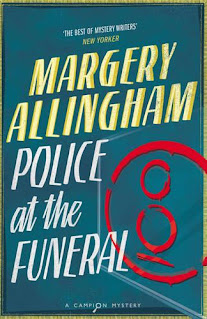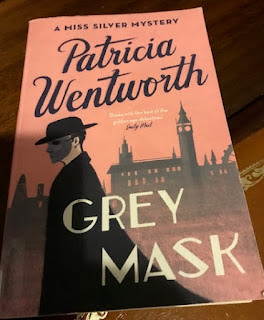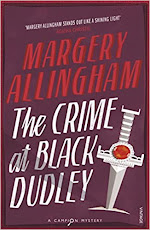Readers see Campion at work when his emotions become involved
Campion is called in to investigate when the leading man in a hit West End musical becomes the victim of spiteful, practical jokes.
The actor and dancer Jimmy Sutane is starring in a
show based on a best-selling book written by William Faraday, who is one of Campion’s
oldest friends. Campion is taken to see the show by Faraday and introduced to
Jimmy after the performance.
The star asks Campion to discreetly look into the
pranks, which are beginning to cause him and his family distress, in this eighth
novel by Margery Allingham to feature her mysterious, clever sleuth.
Campion goes with Faraday to stay at Sutane’s country
home, where he meets the star’s family and some of his show business friends.
During Campion and Faraday’s visit, an unpopular actress
is accidentally run over by Sutane in his own car. Everyone seems happy to
believe that this was an accident, but Campion is not so sure.
As the increasingly unpleasant practical jokes
continue, Sutane’s ambitious understudy is killed, along with several innocent
bystanders. Campion liaises with the police about this unpleasant development while
carrying on with his own investigation.
When the butler in charge of the Sutane household resigns,
Campion has to call on his own unconventional butler, valet, and bodyguard,
Magersfontein Lugg, to help restore peace and order to the now chaotic country residence,
while he continues to investigate the mystery. Lugg gets on well with the
Sutane family, teaching the daughter of the house to pick locks.
In this novel, which was first published in 1937, Campion
finds himself torn, wanting to uncover the facts, but trying to avoid upsetting
a woman he has just met and fallen in love with. However, the determined
detective sticks to his task and it is only at the end of the story that he
finds out the truth.
This is another gripping novel from Margery Allingham,
which slowly unveils Campion’s character, showing his human side. It draws the
reader into Campion’s world and makes us want to find out more about him.



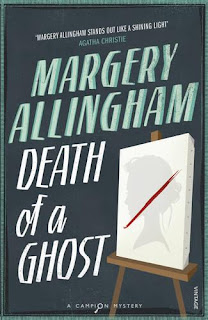

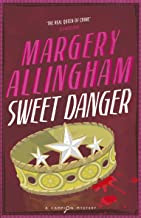
.jpg)
